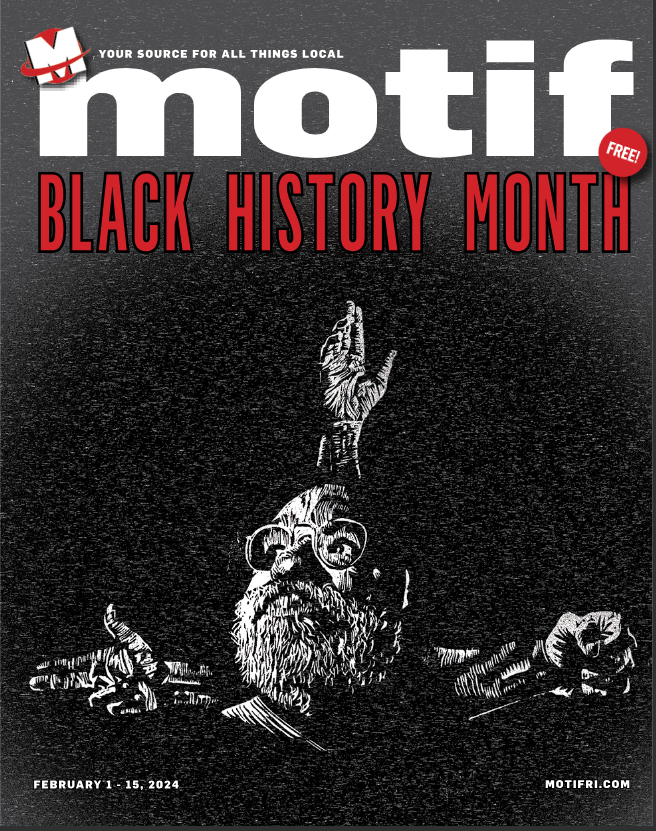
In 1968, The Beatles released one of the most highly regarded albums in popular music, The White Album. And in 2003, Jay-Z, in stark contrast, released his magnum opus, The Black Album. We associate a blackwash with things somber and final. But Motif’s Black History Month Issue is anything but. Featuring the artwork of Jordan Seaberry, a local painter, organizer, legislative advocate, and educator – this Black history issue looks towards an optimistic future.
The cover, a woodcut of the artist’s father depicted in dramatic chiaroscuro, evokes both a responsibility for the past as well as a hope for the future. Black is not only a color of endings, but of beginnings.
Black History, especially in Rhode Island, often comes back to slavery and struggle. In America, we begin sharing our MLK quotes on social media around late January as a kind of soft opening for Black History Month. And then, like how Chanukah celebrations rarely make it the full eight nights, most recognition of Black History Month fizzles out after only a week.
In a recent “Saturday Night Live” sketch, comedian Nate Bargatze jokes about how white he is by claiming to be from Rhode Island. Our state’s early wealth, historic homes, and buildings were all built on a foundation of successes made in the slave trade.
The original impetus for Black History Month was not to look back on the past in shame, but to remember those accomplishments of our Black countrymen who have contributed to contemporary communities and culture.
This year’s Oscar-nominated film, American Fiction, argues that Black stories can be about more than just “deadbeat dads, rappers, crack…” American Fiction is a relatable story about work, love, and family. Black stories – Black history – can be about successes too.
Seaberry, a RISD graduate, born and raised on the Southside of Chicago, has built a career as a grassroots organizer, helping to pass criminal justice reforms.
Understanding that an individual is worth more than their perceived mistakes, Seaberry combines art and policy by serving as co-director of the U.S. Department of Arts and Culture and as a Board Member at New Urban Arts in Providence and at Protect Families First, working on community-oriented drug policy reform.
Through the arts, as focused on here in this issue of Motif, we share not only accomplishments in social justice but also the accomplishments of Black creatives, creators, business leaders, community activists, artists, and chefs all contributing to our beautiful Rhode Island culture.
In 1976, President Ford recognized Black History Month as an opportunity “to honor the too-often neglected accomplishments of Black Americans in every area of endeavor throughout our history.” And this issue of Motif strives for the same goal.